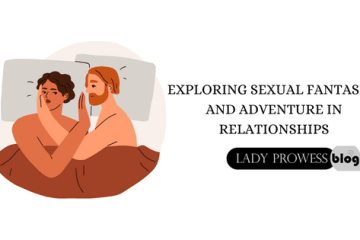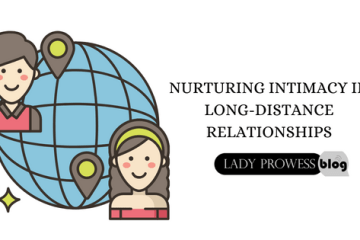How to Deal with Emotional Abuse in a Relationship
Emotional abuse in relationships is a silent but powerful force that can slowly destroy a person’s confidence, happiness, and sense of self-worth. Unlike physical abuse, the harm it causes isn’t always visible, making it harder to recognize. Many people who experience emotional abuse may feel confused, isolated, and unsure if what they’re going through is even abuse.
The effects of emotional abuse are very real, leading to deep emotional pain and long-lasting damage. It can affect every part of a person’s life, from their mental health to their overall well-being. Recognizing emotional abuse is the first important step towards healing and finding peace.
This article will help you identify the signs of emotional abuse, understand its impact, and offer practical advice on how to deal with it. Everyone deserves to be in a relationship where they are treated with kindness, respect, and love. Not control and fear.
Signs of Emotional Abuse
Signs of emotional abuse can often be subtle, making it difficult for those experiencing it to recognize the abuse. However, understanding these signs is crucial for identifying an emotionally abusive relationship. Here’s a detailed explanation:
Constant Criticism or Humiliation
The abuser frequently criticizes, belittles, or humiliates their partner. This can be direct, such as calling them names or making demeaning comments, or more subtle, like backhanded compliments or sarcasm. Over time, this behavior chips away at the victim’s self-esteem, making them feel worthless or incapable of doing anything right.
Manipulation and Control Tactics
Emotional abusers often use manipulation to control their partner’s behavior. This might include guilt-tripping, giving the abuser silent treatment, or making their partner feel responsible for the abuser’s emotions. The abuser may control various aspects of their partner’s life, such as their finances, social interactions, or personal decisions, under the guise of “caring” or “protecting” them.
Gaslighting
Gaslighting is a form of psychological manipulation where the abuser makes their partner question their reality, memory, or perceptions. They might deny events that occurred, twist facts, or insist that the victim is “overreacting” or “imagining things.” Over time, this can lead the victim to doubt their sanity, making them increasingly dependent on the abuser’s version of reality.
Isolation
The abuser may try to isolate their partner from friends, family, or other support systems. This can be done through direct demands, such as forbidding them to see certain people, or more subtly, by creating conflicts or distrust between the victim and their loved ones. Isolation makes the victim more reliant on the abuser and less likely to seek help or realize that the relationship is unhealthy.
Frequent Mood Swings and Unpredictable Behavior
Emotional abusers often have unpredictable moods, ranging from intense affection to sudden anger or coldness. This keeps the victim on edge, constantly trying to please the abuser to avoid triggering their anger. The inconsistency can create confusion and instability, making the victim feel responsible for the abuser’s emotional state.
Excessive Jealousy or Possessiveness
The abuser may exhibit extreme jealousy, accusing their partner of being unfaithful or flirting, even without cause. This jealousy can be a way to justify controlling behaviors, such as monitoring their partner’s phone or whereabouts. Possessiveness may be disguised as love or concern, but it’s actually a means of exerting control over the victim’s life.
Threats and Intimidation
Even if physical violence is not present, emotional abusers may use threats to intimidate their partners. This could be threats of leaving, self-harm, or harm to others. These threats create a constant state of fear and anxiety, preventing the victim from feeling safe or secure.
Erosion of Self-Worth
Over time, the cumulative effect of these behaviors erodes the victim’s self-esteem and self-worth. The victim may begin to believe they deserve the abuse or that they are unlovable or incapable of finding a better relationship. This makes it even harder for them to recognize the abuse or consider leaving the relationship.
Also Read: Signs of a Toxic Relationship
Emotional Impact of Abuse
The emotional impact of abuse can be profound and long-lasting, affecting various aspects of a person’s mental and physical well-being. Emotional abuse can be as damaging as physical abuse, even though its effects might not be immediately visible. Here’s a detailed breakdown:
Anxiety
Victims of emotional abuse often experience chronic anxiety. The constant criticism, unpredictability, and fear of triggering the abuser can lead to a state of hypervigilance, where the victim is always on edge, expecting something bad to happen. This anxiety can manifest as panic attacks, difficulty sleeping, or an overwhelming sense of dread in daily life.
Depression
Prolonged emotional abuse can lead to depression, characterized by feelings of hopelessness, sadness, and a lack of interest in activities once enjoyed. The erosion of self-esteem and constant negativity from the abuser can make the victim feel worthless or trapped, leading to severe depression and, in some cases, suicidal thoughts.
Low Self-Esteem
Emotional abuse often targets the victim’s self-worth, with the abuser making them feel inadequate, unloved, or incapable. Over time, the victim may internalize these messages, believing they are true. Low self-esteem can prevent the victim from seeking help, leaving the abusive relationship, or even recognizing that they deserve better treatment.
Post-Traumatic Stress Disorder (PTSD)
Emotional abuse can lead to PTSD, especially if the abuse was prolonged or particularly intense. Symptoms of PTSD include flashbacks, nightmares, severe anxiety, and intrusive thoughts about the abuse. The victim may also avoid certain situations, places, or people that remind them of the abuse, leading to social isolation or other behavioral changes.
Trust Issues and Difficulty Forming Relationships
After experiencing emotional abuse, victims may struggle to trust others, fearing they will be hurt again. This can make it difficult to form new relationships, whether romantic, platonic, or professional. The fear of being vulnerable again can lead to withdrawal or difficulty in opening up to others.
Strategies for Dealing with Emotional Abuse
Dealing with emotional abuse requires a combination of self-awareness, setting boundaries, seeking support, and taking steps to protect your mental and physical well-being. Here’s a detailed explanation of strategies to handle emotional abuse:
Acknowledge the Problem
The first and most crucial step is to recognize that you are in an emotionally abusive relationship. This can be difficult, as emotional abuse often involves manipulation that makes you doubt your perceptions.
Pay attention to patterns of behavior that make you feel belittled, controlled, or afraid. Understanding that these behaviors are abusive is key to taking action.
Setting Boundaries
Clearly define what behavior is unacceptable and communicate these boundaries to the abuser. This might include telling them not to criticize you in front of others, not to invade your privacy, or not to use threatening language. Be firm and consistent in enforcing these boundaries. The abuser may try to test or violate them, so it’s important to stand your ground.
If setting boundaries doesn’t work, or if you feel unsafe, it may be necessary to limit contact with the abuser. This could involve reducing communication or avoiding certain situations where the abuse is likely to occur.
Seeking Support
Share your experiences with trusted friends, family members, or a support group. Talking about the abuse can provide emotional relief and help you gain perspective on the situation. Support from others can also strengthen your resolve and help you feel less isolated.
A mental health professional can also assist you in creating a safety plan if you decide to leave the relationship.
Developing an Exit Plan
A safety plan involves practical steps to protect yourself if you decide to leave. This may include identifying safe places to go, setting aside money, gathering important documents, and planning how to leave without alerting the abuser.
If the abuse is severe and you feel unsafe, it’s important to develop a plan to leave the relationship. Start by assessing your current situation—consider your financial resources, living arrangements, and any potential risks.
Self-Care and Healing
Engage in activities that nurture your physical, emotional, and mental health. This could include exercise, meditation, hobbies, or spending time with loved ones. Self-care is essential for rebuilding your confidence and resilience after experiencing abuse.
Emotional abuse often damages self-esteem. Work on rebuilding your sense of self-worth by focusing on your strengths, accomplishments, and the positive aspects of your identity.
Rebuild and strengthen relationships with supportive friends and family members. Surrounding yourself with positive influences can help counteract the negative effects of the abuse.
Don’t be afraid to ask for help when you need it—healing is a process, and having a strong support system can make a significant difference.
What to Avoid
- Don’t Blame Yourself: Understand that the abuse is not your fault. Abusers often try to make their victims feel responsible for the mistreatment, but it’s important to reject this false narrative.
- Avoid Isolation: Emotional abusers often try to isolate their victims to maintain control. Resist the urge to withdraw from others, and instead, actively seek out connections with people who care about you.
- Don’t Engage in Arguments: Engaging in arguments with the abuser is often futile and can escalate the situation. Instead, maintain your boundaries and, when necessary, remove yourself from confrontational situations.
- Don’t Rush the Healing Process: Healing from emotional abuse takes time. Be patient with yourself and recognize that recovery is a journey with ups and downs. It’s okay to take things one step at a time.
Final Thought
Breaking free from emotional abuse takes courage, but it’s a journey worth taking. It starts with recognizing the abuse and knowing that you deserve a life filled with respect and kindness. While the emotional wounds may be deep, healing is possible. By setting clear boundaries, seeking support, and focusing on your own well-being, you can regain control of your life.
You are not alone. There are people and resources ready to help you as you heal and move forward. Remember, emotional abuse does not define who you are. With the right steps, you can build a future full of peace, love, and respect.
Believe in yourself because you have the strength to create a better, healthier life.



0 Comments